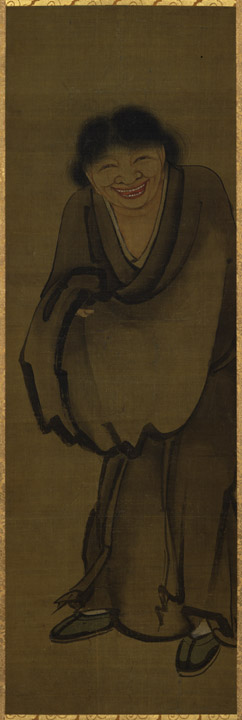Cold Mountain Transcendental Poetry
Hanshan: Citations en anglais
Cold Mountain: 100 Poems by the T'ang Poet Han-shan
Translated by Mary Jacob[citation needed]
It is unlikely that this poem, translated by Mary Jacob, is authored by Han-shan. In comparing it with every poem in the corpus it will be found that there is not a close match. Moreover, neither the language nor the content of this poem is that of Han-shan. Most importantly, this poem does not have the appropriate number of lines for a Han-shan poem. Jacob's poem has 9 lines; there is not a single example of a 9 line poem in all of Han-shan's poetry. All of Han-shan's poems are 4, 8, 10 or 14 lines, with a few that have more than 14. Further, Jacob's poem has an odd number of lines; there is not a single example of a poem with an odd number of lines in all of Han-shan's poetry. Finally, the 9th and final line in Jacob's poem has the words “ha ha ha.” Not a single Han-shan poem has those words as a final line. Perhaps someone is having a joke?
Disputed
“Cold Mountain Son
Forever not change
I live alone
Beyond life death”
Cold Mountain Transcendental Poetry
